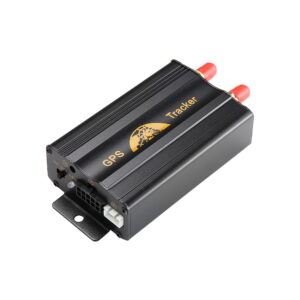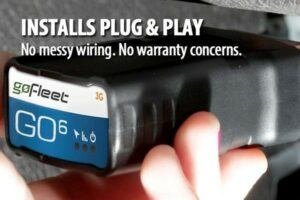People often like to enquire about the accessories they buy and fit into their cars. And some of the question we often get is: “does car GPS work without battery?”. They need to know if this is possible so they can make a decision before letting go of their hard-earned money. In this delicious new post, we will be answering this question so it can ease your mind.
There are different types of car trackers out there with different power sources. Yes, a car GPS tracker can work without a battery. Remember that a vehicle has a way of generating power from its running engine, and the car battery itself. This can help to power any mobile device without external means.
In fact, there are three ways a GPS car tracker can generate power. From a battery connection, which we all know, but also from a plug-in connection and the GPS being hardwired to the vehicle. As we look further, we will try to explain the features of the plug-in car tracker and the hardwired car tracker as alternatives to the battery powered GPS car tracker.
Table of Contents
Plug – In Connection
This type of connection is known by some other names. It is often called a plug-and-play connection, or an OBD connection.
It is called those because you can just connect it to the OBD connector of your vehicle and you are good to go. OBD, in case you were wondering, is short for On-board Diagnostics.
Some people like this mode of connection because it is simple and you really don’t need any tool to fix it. Just connect the GPS tracker straight to the OBD.
The position of the OBD connector may differ from vehicle to vehicle, but it is usually seen under the steering wheel or just above the driver’s knees. This plug and play function enables you remove it easily and use it for as many vehicles as you like.
The downside is that because of its mode of connection, the tracker is easily visible and by virtue of position, it might come too close to the foot pedals which might cause some disturbances while driving.
To cover up for some of the lapses of an OBD plug – in connection, an OBD extension is used. This gives some form of flexibility since you are now connecting the tracker to a cable, and then the cable to the OBD port itself.
This way, you can connect the tracker and then since there is a cable, you can now extend and hide it in some safe place in the vehicle that you like, and make sure that it does not interfere with your foot while stepping on the pedal.
Hardwired Connection
As the name implies, hard-wired GPS car trackers are connected directly into the wiring of the vehicle. Some people prefer this method especially if their vehicle does not have the OBD port, which is used for non-wired trackers.
We have noticed that most modern cars do not have the OBD port, which is by itself another reason why people opt for the hardwired mode of connection.
The major advantage the hardwired connection has over the OBD connection is that the tracker can be hidden in any part of the vehicle. Since the wires are not visible, no one will know it is there, let alone where it is being located.
Which One Do I Go for?
Having considered the other options to a battery powered GPS car tracker, the next big question is: which one do I go for? We will try to answer this question based on their pros and cons. But you have to bear in mind that the purpose you have will determine the option you will go for. Let us now consider their pros and cons.
Pros of Plug – In GPS Connections
Let’s see how wonderful the OBD connection really is.
Easy to install and uninstall
The plug – in connection needs no calibration or configuration. It is very easy to connect to the OBD connector. It also does not need any tool to fix it. You can also easily disconnect it from your vehicle and attach it to another vehicle.
But you must bear in mind that if you disconnect, whatever connection or communication the tracker had will be lost. Once you locate the OBD port of your vehicle, that’s all the rest is history.
Very portable
Companies and other transporters exploit the portability of this device for their business. Since it is small in size and very easy to fix and detach, you can change it between vehicles and automatically start getting vehicle diagnostic data. No hassles at all. It is also affordable because no other accessories are needed for it to function.
Once it is connected, details like fuel consumption can be monitored easily, hence helping the drive make quick decisions on the shortest possible route to take to his or her destination. This feature can be labelled a “built-in, in-cab driver coaching”.
The built-in, in-cab driver coaching GPS tracker comes with a subtle alarm system that helps to guide the driver concerning specific driving behaviors like guiding through specific drive routes to a destination, speed limit, sudden application of brakes and rapid acceleration. Isn’t the GPS OBD connector wonderful?
Cons of Plug – In GPS Connections
As wonderful as it seems, the Plug – in GPS connection could have some features you might not need. Some of them are:
Access to only engine and vehicle data
It might interest you to know that in event of damage, even a technician might not have access to the data contained in this car tracking device. This is because the OBD connector is contained in a hard box. And if a technician cannot assess this data, best believe any other person without technical background won’t even come close.
Stolen easily
You had this one coming. If this GPS tracker is so easy to remove, it therefore means in the hands of the wrong person, it can be dismantled and stolen. So the ease at which it can be unmounted might not necessarily be an advantage.
Also, with the position of the OBD connector, it is easy for anyone who knows what a tracker is to identify it. Here, all element of surprise is lost. If a car is jacked, and the person who high-jacked it sees the car tracker, he can just easily remove it and carry out his evil machinations.
Pros of Hardwired GPS Connection
Let’s see how this tracker fares against the OBD connection
More than engine and vehicle data
The features of the hardwired system are more than the OBD connection type. For all the OBD can do, the hardwired car tracker goes further to generate electronic logged-in devices, engine input monitoring and integration to the Garmin system.
Easy to install
For people who are used to electrical connections, there is the three wired system that electronic devices have. The hardwired GPS car tracker is connected to the ground, power and ignition of the engine. This is a more holistic kind of approach. It is also very easy to hide and even has a tamper seal that can notify the driver if the system has been rigged.
Cons of Hardwired GPS Connection
And its disadvantages…
Calibration issues
Unlike the OBD tracker that can be used for multiple vehicles, the hardwired GPS tracker can be used for only one vehicle. With the time taken to install it into one vehicle, you would not want to spend that much time removing it and fixing it into another car.
Time consuming
Only a qualified technician can install this type of tracker. And the best of them can take up to 30 to 40 minutes to install, now imagine if you have to do it yourself!
Conclusion
If you want to install a GPS car tracker and you do not want battery issues, well, you now know you have options. In fact, you are spoilt for choice!



